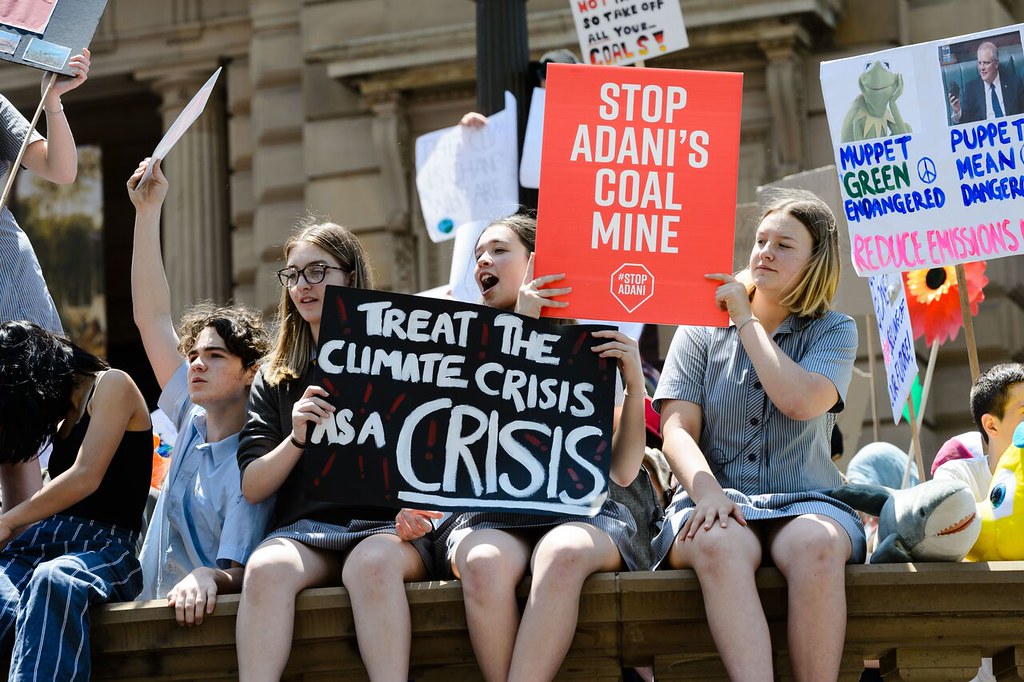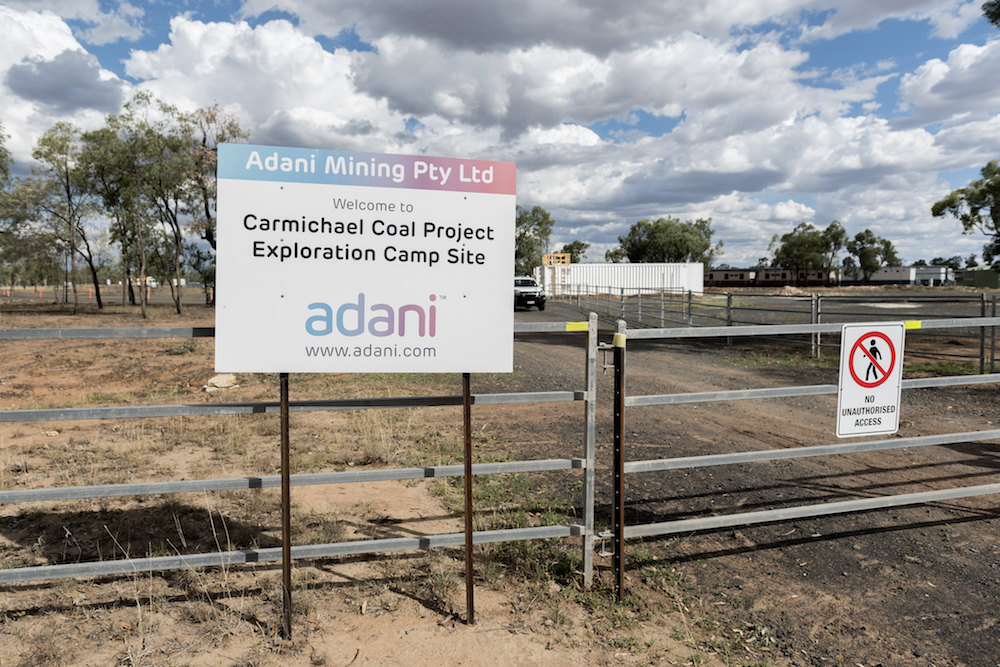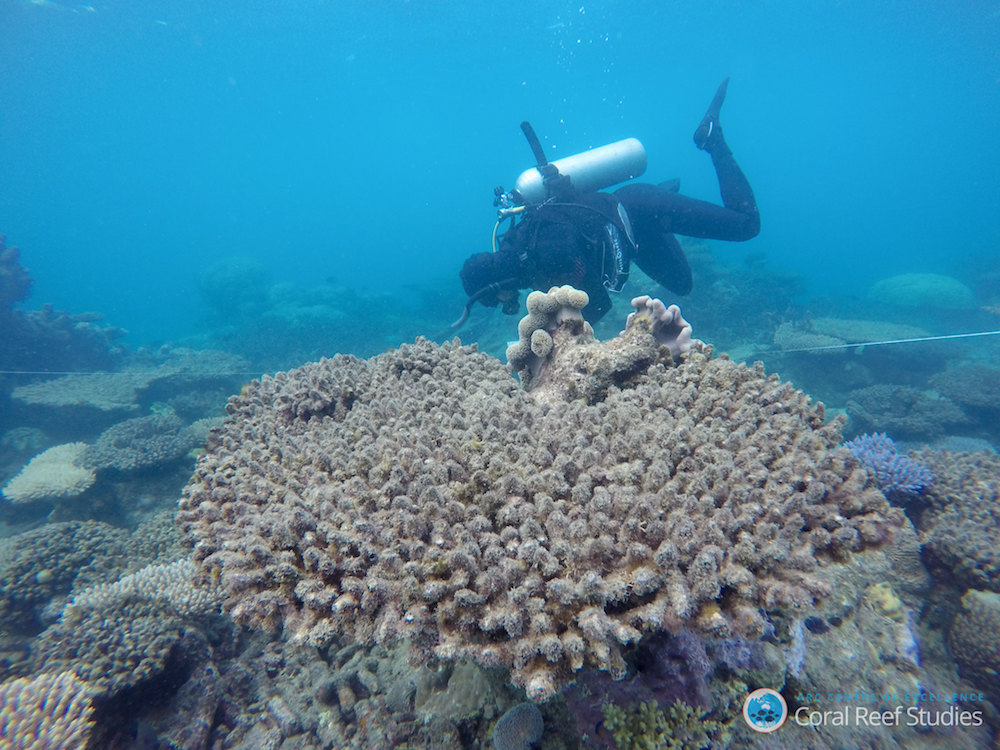The Adani Carmichael coal mine — one of the most controversial fossil fuel projects in Australia’s history — has been handed its final environmental approval.
Based in Queensland, the Indian-owned mine has been beset by controversy after gaining its first set of approvals back in 2014, sparking a nationwide “Stop Adani” movement and multiple legal challenges.
Initially proposed as a massive 60 million metric ton per year mine, the project, including a rail line, has since been downscaled and is expected to export an initial 10 million metric tons per year, with plans to ramp up to about 27 million metric tons annually.
Adani jumped its final legal hurdle on Thursday, when the Queensland state government passed the mine’s underground water plans.
Adani mine camp. Credit: Jeremy Buckingham, CC BY 2.0
Extinction Risk
Scientists have warned the mine could cause one of the world’s last unspoiled desert oases — the Doongmabulla Springs — to dry up. The mine also risks the survival of the endangered black-throated finch.
Environmentalists and politicians with the country’s Green party have pledged to keep fighting, pointing to the potential for more legal challenges. Australia’s environmental laws do not take into account the impacts of projects on climate change.
Earlier this year, it was revealed the company had hired a legal team to carry out a “trained attack dog” strategy that would target opponents of the mine.
Australian Youth Climate Coalition spokesperson Olivia Hill said: “If Adani think that they’ll be able to start work on this mine without a fight, they’ve got another thing coming.
“A powerful community movement involving millions of people across the continent has held off this destructive project for the last six years and we’re never backing down.”
Campaign group Market Forces also targeted potential financial backers of the Adani mine, with more than 50 making public statements distancing themselves from the project.
Adani’s coal will be exported through the company’s own port on an ironic route through the Great Barrier Reef — which is already suffering climate-related impacts from burning coal — and out to Indian power stations where most of the coal will be burned.
Carbon Pulse
Another reason why Adani has become such a totem for climate change campaigners is what might come after it.
The Adani mine will be the first in the massive untapped Galilee Basin in Queensland, opening up the prospects for at least five other large thermal coal projects.
This means that the Adani mine risks sparking the release of a large pulse of carbon dioxide into the atmosphere.
Greenpeace identified the Galilee Basin area in its 2014 “Point of No Return” report as one of 14 dirty energy projects that were “in direct conflict with a livable climate.”
Another analysis suggested that if all the projects proposed for the basin were to go ahead, including the larger version of Adani’s project, this would represent about 10 percent of global emissions.
Reef Risk
A researcher from the ARC Centre of Excellence for Coral Reef Studies surveys the bleached/dead corals at Zenith Reef,in the northern section of the Great Barrier Reef, November 2016. Credit: Andreas Dietzel, CC BY–ND 2.0
Since the Queensland project was first raised, the state’s iconic Great Barrier Reef has been hit with back-to-back mass coral bleaching events that killed up to half the corals in the reef’s central and northern sections.
The reef is a major contributor to Australia’s economy, with a 2017 Deloitte Access Economics report finding the World Heritage icon contributed AU$6.4 billion a year to the economy and supported 64,000 jobs.
Shani Tager, Great Barrier Reef campaign manager at the Australian Marine Conservation Society, said: “As custodians of the world’s greatest coral reef system, Queensland and Australia has to lead by example and show there’s a bright future for everybody that’s beyond coal. Instead, they’ve approved a new fossil fuel project which will put more pressure on our Reef.”
Adani’s lobbyists, its directors, and its owner, Gautam Adani, have lobbied the country’s state and federal governments long and hard over the mine.
The Adani mine became a focal point for last month’s national elections in Australia, particularly in regional Queensland where politicians have touted the prospect of hundreds of new jobs for the area.
Emma Briggs, a spokesperson for Frontline Action on Coal, said: “If the railway line is built, Adani’s mine will be followed by Palmer’s, Rinehart’s, and others, meaning Australia’s greenhouse [gas] emissions will more than double and any hope of averting the worst effects of climate breakdown will be lost.
“These automated mines will not provide the jobs people need. We need a fair transition into a renewable energy economy and when the government fails us we must take personal action to ensure this happens.”
Graham Readfearn has been reporting on the Galilee Basin and its climate change implications for DeSmog and other outlets since 2013. He now also works as a media advisor for the charity Australian Marine Conservation Society.
Main image: Melbourne, Australia, School Strike for Climate rally. Credit: Stop Adani, CC BY 2.0
Subscribe to our newsletter
Stay up to date with DeSmog news and alerts








